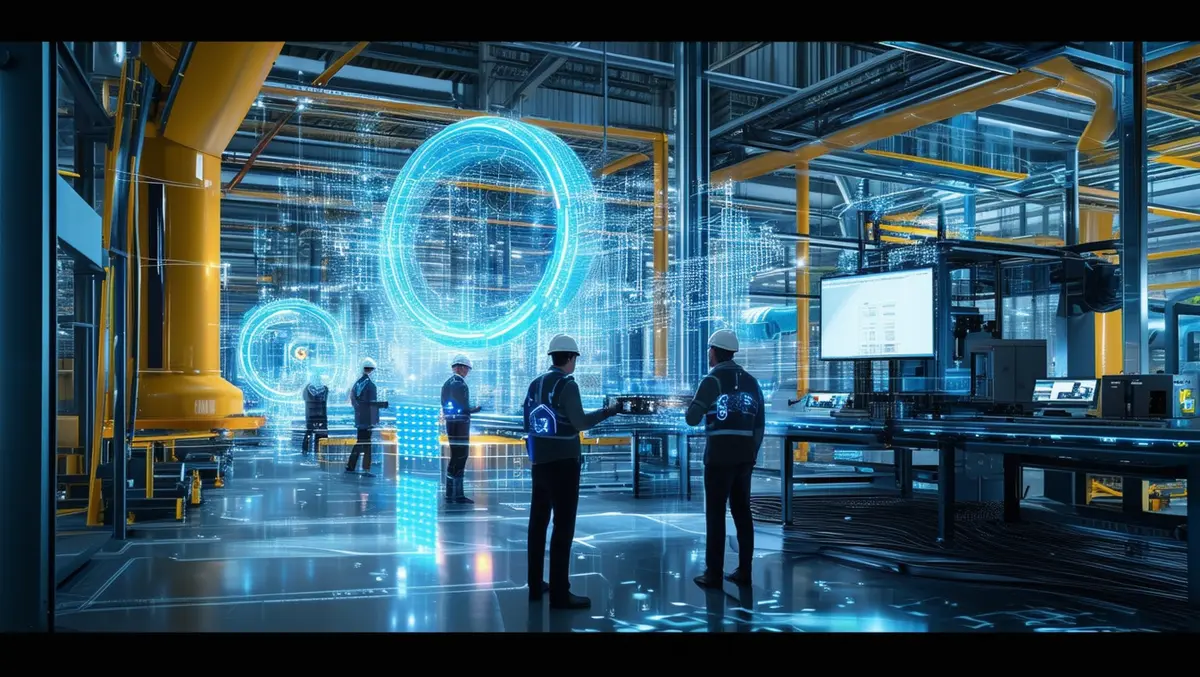
Industrial Metaverse set to revolutionise global industries
The concept of the metaverse has transitioned from the realms of gaming and entertainment into the industrial sector, initiating a new phase of digital transformation referred to as the "Industrial Metaverse." This integration of physical and virtual worlds aims to foster innovation, optimise operations, and enhance collaboration across industries, which are currently navigating the complexities of Industry 4.0.
At its core, the Industrial Metaverse is an adaptation of the broader metaverse concept specifically designed for industrial applications. It features a virtual environment where real-world industrial processes are replicated, simulated, and optimised. Utilising advanced technologies such as artificial intelligence (AI), digital twins, the Internet of Things (IoT), augmented reality (AR), and virtual reality (VR), this metaverse provides an immersive and interactive digital space. This environment allows industries to visualise and interact with digital versions of physical assets, systems, and processes, facilitating real-time decision-making and global collaboration.
One of the central elements of the Industrial Metaverse is digital twins. Digital twins are virtual copies of physical assets, processes, or systems that are updated in real-time to mirror changes in their real-world counterparts. These digital twins allow industries to simulate scenarios, predict outcomes, and optimise operations without disrupting actual production. For example, a manufacturing plant can generate a digital twin of its production line to pinpoint bottlenecks, test new configurations, and refine workflows within the virtual space before implementing changes in the physical environment, thereby reducing downtime, costs, and risks associated with trial-and-error methods.
The potential of the Industrial Metaverse to enhance collaboration is particularly noteworthy. Engineers, designers, and operators from various global locations can interact in real-time within the virtual environment, working on the same digital twin or simulation. This level of collaborative capability eliminates the necessity for physical presence, thereby decreasing travel costs and expediting project timelines.
In addition to facilitating collaboration, the Industrial Metaverse is transforming training and skill development. AR and VR technologies enable immersive training sessions where employees can practice complex tasks in a secure and controlled virtual environment. This method is invaluable in high-risk industries such as oil and gas, where hands-on training can be both expensive and dangerous. Through metaverse-based training, employees gain confidence and competency before engaging with real-world equipment.
The Industrial Metaverse also contributes significantly to sustainability and efficiency. By simulating and optimising processes in a virtual environment, industries can curtail energy consumption, minimise waste, and lower their carbon footprint. For instance, a logistics company can model and optimise supply chain routes within the metaverse to reduce fuel consumption and emissions. Similarly, manufacturers can simulate various production methods to identify the most energy-efficient and environmentally friendly techniques.
Despite its promising potential, the Industrial Metaverse faces several challenges. Issues such as data security, platform interoperability, and the need for robust infrastructure are critical considerations. Moreover, addressing the digital divide is essential to ensure that all stakeholders have access to the required tools and training to engage fully in this new ecosystem.
The Industrial Metaverse is expected to become a fundamental aspect of Industry 4.0. As technology continues to advance, the metaverse will likely expand its capabilities, providing even more sophisticated simulations, real-time analytics, and collaborative tools. Industries that embrace this digital revolution will be in a better position to innovate, compete, and thrive in the ever-changing global marketplace.
.webp)

